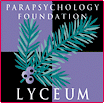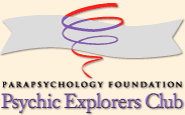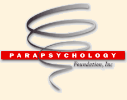 |
 |
| Because there are no university programs with enough courses on parapsychology, as there are for anthropology, psychology, physics and many other fields, you need to engage in self-study to obtain a general view of the field. The Parapsychology Foundation has published a general guide that provides leads about where to find information, including databases, specific book and article reviews, and other general literature of parapsychology. Click here to see a description of this guide. In addition, the PF has a series of bibliographies on its website that recommend a variety of books and articles. Some of the bibliographies cover varied topics such as introductions to the field and its phenomena and methods. Other bibliographies list historical works, theoretical and methodological discussions, survival of death, aspects of the profession, and autobiographies and biographies of psychics and mediums. In addition, there are lists of readings about specific phenomena, among which are hauntings, healing, mediumship, near-death experiences, out-of-body experiences, poltergeists, reincarnation, and spontaneous ESP. For a list of PF Bibliographies, click here. While the bibliographies of general books focus on recent publications, it is also useful to check the general books discussing earlier periods of the field. A good overview of older ideas and investigations appears in Rene Sudre’s Treatise on Parapsychology (London: George Allen & Unwin, 1960, original work published in French 1956). The current scene cannot be properly understood without the study of the journal literature, particularly the parapsychology journals. Click here and scroll down for a list of journals. Many important research findings, as well as literature reviews are published in the journals and it sometimes takes a long time for this to filter into books. There are also a few important papers that appear in the journals of other disciplines, particularly in psychology. In addition, the proceedings of papers presented at the conventions of the Parapsychological Association should be consulted. Some of them are online. Click here for a list of the available proceedings. Your self-education should also include the literature which presents criticisms of parapsychology, some of which is written by parapsychologists. Click here for a bibliography of critical works. It is up to you to decide if the criticisms of parapsychology you read are valid or not. But regardless of whether or not you agree, reading this literature will provide you with alternative viewpoints, and with information to understand the current state of the field. Above all, early attention to critical and skeptical approaches are very important in the development of a scientific attitude, although one has to be careful about the exaggerated critiques some individuals make. To find out more about this type of criticism, click here for some selected critiques of some of these individuals. The critical literature can also help you to understand that other people think differently and/or make different assumptions than you do, and it also serves as a reminder of how important credibility is in science, especially as an issue faced by parapsychologists all the time. |
 |

|
 www. parapsychology. org |
||